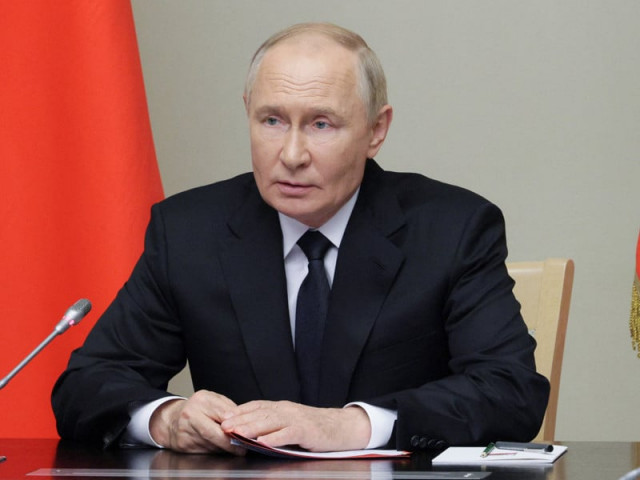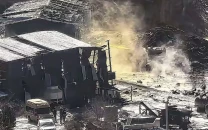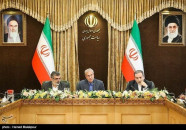Nuclear threat unlikely as US eases weapon restrictions for Ukraine
US intelligence downplays nuclear escalation risks, noting Russia’s preference for covert retaliation measures

The United States' decision to permit Ukraine to use American weapons for deeper strikes into Russia has not significantly increased the risk of nuclear escalation, according to five sources familiar with US intelligence.
Despite Russian President Vladimir Putin's increasingly aggressive rhetoric, a nuclear attack remains unlikely. However, Russia is expected to intensify sabotage efforts against European targets as a means of pressuring the West over its support for Ukraine, say two senior officials, a lawmaker, and two congressional aides.
Over the past seven months, multiple intelligence assessments have concluded that the loosening of restrictions on US weapons use by Ukraine would not provoke nuclear escalation.
The assessment remains unchanged following President Joe Biden’s decision to adjust US policy on arms transfers. One source highlighted that the deployment of ATACMS missiles, with a range of up to 190 miles (306 km), would not alter Russia's nuclear stance. Even Russia's recent test of a ballistic missile, interpreted as a warning to the West, has not affected this conclusion.
While US intelligence does not foresee nuclear escalation, one official noted that Russia is likely to match perceived US escalations, as evidenced by its missile test. These intelligence insights have guided debates within the Biden administration on the risks of loosening restrictions on US weapons use, including concerns over potential retaliation against American or NATO assets. Initial resistance to the policy change was grounded in fears of nuclear escalation and broader retaliation.
North Korea’s involvement
Biden's shift in policy is partly attributed to North Korea’s involvement in the conflict, with Pyongyang sending thousands of soldiers to aid Russia. This was seen as an escalation by Moscow, prompting Washington to permit Ukraine to conduct longer-range strikes.
Some US officials argue that concerns about nuclear escalation were overstated, though the broader risks of the Ukraine conflict remain significant. Intelligence assessments have consistently described Russia’s nuclear threats as a last resort, with Moscow preferring other forms of retaliation, including sabotage and cyberattacks.
Russia’s sabotage tactics
Russian sabotage operations in Europe are viewed as the most likely form of reprisal against Western support for Kyiv. Moscow has intensified covert efforts to intimidate European nations backing Ukraine, leveraging its extensive network of agents.
Analysts suggest this "grey-zone" warfare poses a significant challenge to Western interests.
Escalation concerns persist
Since Ukraine's surprise incursion into Russia’s Kursk region in August, both sides have engaged in escalating measures. The US had previously restricted Ukraine’s use of American missiles for strikes inside Russia, citing minimal tactical benefit and concerns over provoking Russia.
However, North Korea’s military involvement and Russia’s battlefield advances shifted US policy, with officials believing that earlier decisions to limit weapons use may have been overly cautious.
Despite US intelligence concluding that nuclear escalation remains unlikely, some officials in Washington warn that Putin’s next steps remain unpredictable. Pentagon officials continue to express concerns about the possibility of retaliatory attacks, including strikes on US military bases or more aggressive measures in Europe.



















COMMENTS
Comments are moderated and generally will be posted if they are on-topic and not abusive.
For more information, please see our Comments FAQ